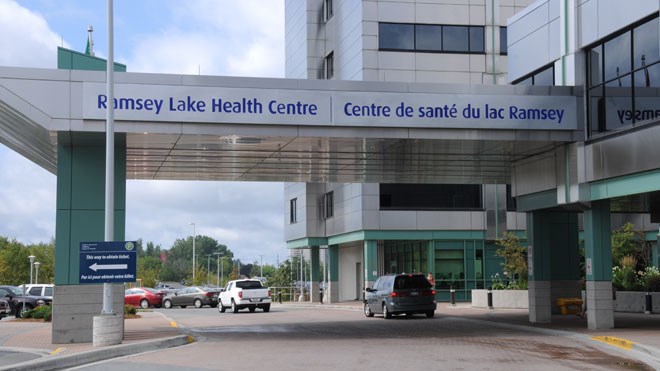Our political parties have outdone each other. There are proposals for dental care and pharmacare; for new long-term care beds, new nurses, new hospital beds, more funding for mental health. Most proposals are in response to well-reported failures in the health care system following five years of tough times.
At Health Sciences North, directed by government to balance budgets, we have been cutting staff since 2012, with no corresponding cuts in services. Staff are reporting increasing difficulty finding the time to sit and chat with patients. There is just too much to do. Bed shortages have led to patients in hallways and bathrooms. Young people looking for help with depression must often wait for over a year.
Simply put, government has been unable to meet the soaring demand for services because it had promised to eliminate the provincial deficit.
This is the crux of the problem. Health care is the heavy responsibility that is hung about the neck of every new government. Demand is soaring. People are living longer. New technologies and drugs are being introduced. They have the potential to make our lives better, but they cost a lot. The costs will continue to rise. Health care spending is already the largest provincial expenditure.
There are other problems.
Two thirds of the population is overweight, even affecting our children. Only 15 per cent of those over 65 take regular physical activity. The incidence of depression is going up. Increased investment in public health is often recommended, but usually ignored.
The Northeast Local Health Integration Network (LHIN) cannot attract sufficient personal support workers to provide care in the home and in our long-term-care facilities because the staff are paid so poorly.
While 25 per cent of Ontario’s health care budget is spent on care in the last six months of life, little is spent on ensuring high quality end-of-life care. Nearly 60 per cent of patients die in hospital. Most people in Ontario say they would prefer to die at home.
Too many folks do not have an understanding of the nature of their ill health. Too many do not know why they are taking medications. This is a big problem for those who suffer from multiple chronic diseases and consume many different medications. Health care providers often do not have the time to carry out the necessary conversations to ensure understanding.
We have too many independent health-care organizations. This slows the movement of patients to the right facility at the right time. Silos in health information mean doctors can get the information we need to review our patients in a timely manner. Health Sciences North has more than 10 different electronic medical records systems that do not talk to each other. Then there are doctors’ offices with their own medical records. Patients have little access to their own health information. And the list goes on.
Many patients have multiple chronic diseases with a different specialist for each disease. Looking after the whole person can become a problem. Geriatricians are trained to help our family doctors meet this challenge. We have only two for all of northeastern Ontario.
According to provincial data, only 57 per cent of Ontarians have reliable access to a family doctor or nurse practitioner who knows them well. Only 22 per cent of people in northeastern Ontario were able to get an appointment on the same or next day when they were sick.
When compared to other wealthy countries, our health-care system is ranked as mediocre when measured for quality.
And the list goes on.
The bottom line is that our health care system, Medicare, was designed in the 1960s when Canadians were young. Now, life expectancy is over 82. The number of people aged 85 and older grew by 19 per cent in the last five years. People over 100 were the fastest-growing age group in the last census.
There have been many additions to the old system, but no serious attempt at forging a new Medicare to meet the needs of modern times in an affordable manner. It is well past time.
We desperately need all three of our main political parties to strike an all-party committee to begin the analysis and planning. If they can’t together on this, it will not happen and or so-so health care system will remain just that.
Dr. Peter Zalan is Past President of the medical staff at Health Sciences North. His monthly column tackles issues in health care from a local perspective. If you have a question for Dr. Zalan, email it to [email protected].
